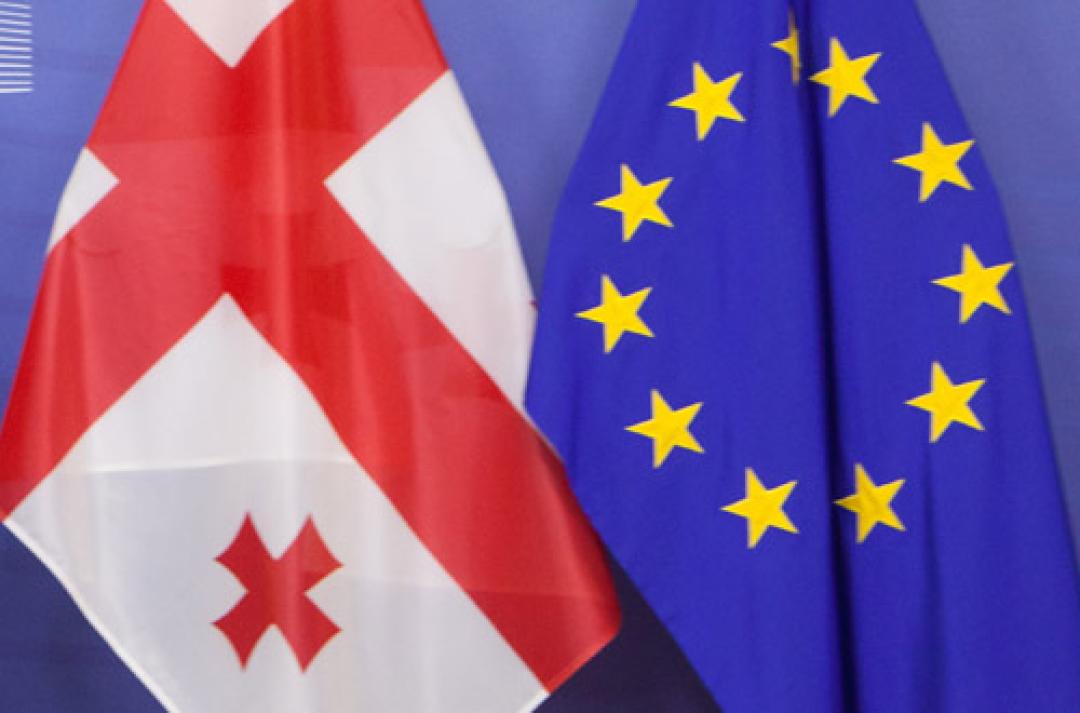
Georgia's Geopolitical Path and the NGO Law

As Tbilisi's relations with Western countries deteriorate to an unprecedented level, this opens up a dynamic with Russia. Moreover, the move fits in with what Georgia has been doing for the past two years - pursuing a multi-vector foreign policy.
On April 3, the ruling Georgian Dream party announced the revival of a draft law that was previously abandoned after large-scale protests in Tbilisi in March 2023, with an earlier understanding that it would not resurface. The only change in the draft is its title, which now reads "Organization Carrying Out the Interests of a Foreign Power," eliminating the term "agent." The bill still requires organizations that receive more than 20 percent of their funding from abroad to file annual reports to avoid fines, as was the case in 2023.
The reintroduction of the bill has sparked widespread protests in Tbilisi and drawn criticism from Georgia's Western allies and international donors. NATO, the EU, and the United States have all expressed concern about the potential negative impact on Georgia's path toward EU membership and its broader geopolitical orientation.
The timing of the reintroduction of the bill is interesting. It follows allegations that NGOs are undermining Georgia's judicial system and fostering a revolutionary climate. While the opposition and NGO sector often point to Russian influence behind the draft law, the direct link remains unclear. However, the spirit and framework of the law reflect actions taken by illiberal states across the Eurasian continent.
The Georgian government may be using the law as a maneuver to secure concrete commitments from the EU for membership talks scheduled for late 2024. Alternatively, the motive could be simpler: the ruling party's aim to secure a fourth consecutive term in the upcoming crucial parliamentary elections in order to retain power.
The reintroduction of this bill will have a significant impact on Georgia's relations with the EU, a connection critical to the country's role as a gateway to Central Asia and China through the Middle Corridor, bypassing Russian territory, and as a land bridge to Armenia, which is strengthening its ties with Brussels. Success on the road to EU membership could have a significant impact on Armenia, especially given its strained relations with Russia.
With Georgia receiving EU candidate status in December 2023 and accession talks expected to begin in late 2024 or early 2025, the bill could potentially isolate Georgia from its closer engagement with Brussels. Georgia's strained relations with the EU could play well in Russia, which has noted Tbilisi's increasingly critical stance toward the West. Moscow might see the NGO law as a means of deepening the wedge between Tbilisi and the West, and Russia's strategic moves in the region, particularly in Abkhazia and South Ossetia, could play a significant role in shaping future relations, possibly using these territories as bargaining chips in broader geopolitical negotiations.
From a broader perspective, the NGO law and the tensions it symbolizes with the West underscore Tbilisi's pursuit of a multi-vector foreign policy, especially since the outbreak of the war in Ukraine in February 2022. Georgia's closer engagement with China, Central Asia, the Arab Gulf states, etc. fits into this trend. The fixation on the West that characterized Tbilisi's foreign policy seems to have come to an end. However, Georgia is not the only country in the region that tends to pursue this type of relationship with the EU and the West in general. Azerbaijan, Turkey and the Central Asian states have all maintained exclusively transactional relations. Georgia is likely to follow the same path.
However, the margin between a multi-vector foreign policy and falling into the orbit of an unfriendly country is dangerously narrow. Multi-vector foreign policy is about maintaining a balance in foreign relations. If Tbilisi's relations with the EU deteriorate irrevocably, the very essence of multi-vectorism will be called into question.
Moreover, the success of this type of foreign policy is also based on a set of capabilities that the country possesses, a powerful geographic position that it enjoys, and perhaps most importantly, a diplomatic tradition of balancing between various actors. Georgia has some of these, but lacks others, which makes it unclear how successful a multi-vector foreign policy is overall.
The rise of multivectorism in Georgia and the region as a whole demonstrates the complexity of the geopolitical situation. But perhaps most of all, it reveals the limits of Western influence in a region where multiple geopolitical actors allow smaller nations like Georgia to forge their own paths, despite the inherent risks.
The EU and the West in general have failed to integrate Georgia to the extent that it would have been impossible for Tbilisi to challenge its Western course. Situated on the periphery of the EU, Georgia remains only partially bound by its close ties with the West. This has its own downside in terms of the unavoidable ressentiment that is bound to emerge as a result of unfulfilled expectations. Indeed, we may now be witnessing this trend in Georgia, with potentially long-term implications for the country's foreign policy trajectory.
About author: Emil Avdaliani is a professor of international relations at the European University in Tbilisi, Georgia, and a scholar of the Silk Roads.
See Also


From Neorealism to Neoliberalism: Armenia’s Strategic Pivot in Foreign Policy After the Nagorno-Karabakh Conflict

Georgia and Russia: New Turn in Bilateral Relations

3+3 Initiative as a New Order in the South Caucasus

Economic Cooperation Between Armenia and Georgia: Potential and Challenges Ahead

